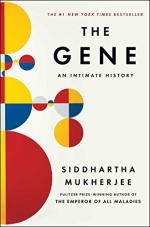|
This section contains 823 words (approx. 3 pages at 400 words per page) |

|
Summary
In this chapter, Mukherjee explores the following question: "If the 'self' is created through the chance interactions among events and genes, then how are these interactions actually recorded?" (391). As genes enabling different functions are turned on and off throughout a person's life in response to the circumstances they encounter, is there some permanent mark or stamp left on the genome? To explore this question, Mukherjee uses the story of Dutch citizens who suffered a famine during World War Two, and whose descendants showed the effects of this famine in their phenotypes for three generations. This seems to suggest that a genetic response to environmental triggers can be stamped on the genome and passed down, though only in a limited way. For example, a mouse that gets its tail cut off will not breed tail-less mice. Mukherjee outlines embryonic studies that...
(read more from the The Hunger Winter (Part Five) Summary)
|
This section contains 823 words (approx. 3 pages at 400 words per page) |

|




